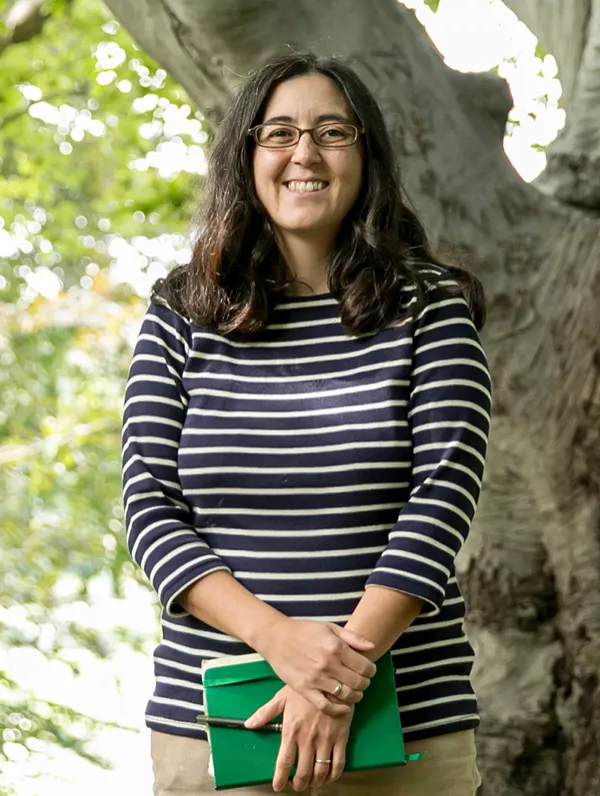Biology's Sydne Record Chairs NSF Meeting on Diversity in Collaborative Science

Associate Professor of Biology Sydne Record brought together more than 250 researchers for a two-day National Science Foundation meeting last month on increasing diversity, equity, and inclusion in environmental biology and in conducting collaborative research.
More than 200 institutions from all over the U.S. were represented at the virtual event. Attendees represented investigators funded by the Division of Environmental Biology at the National Science Foundation.
Record was contacted by the NSF more than a year ago to be on the meeting's organizing committee.
"I ended up having a vision for the meeting theme to be on diversity, equity, and inclusion—a topic the group has not covered in the past—last January, so I ended up chairing the organizing committee," explains Record. "As a Japanese American whose grandparents were forcibly put into internment camps during WWII, diversity and inclusion are paramount to me."
Highlights of the meeting included a keynote by Bala Choudhary of DePaul University on "10 Simple Rules to an Anti-Racist Lab," a keynote by Sparkle Malone of Florida International University on her path to becoming an ecologist as a Black woman, and lightning talks and posters of cutting-edge science.
Record co-directs the Harvard Forest Summer Research Program in Ecology which actively recruits with a lens of diversity and inclusion. In the last two years she has been particularly focused on diversifying the pool of mentors in the program. She currently has two peer-reviewed papers in revision on retaining diverse faculty in ecology and extending the ecological tent with environmental data science for students who find fieldwork environments unwelcoming.
As a follow-up to the meeting, Record is writing a paper for PLoS Computational Biology's "10 Simple Rules" series on how to run a conference on diversity and inclusion in collaborative science. She will also be on the meeting's organizing committee for next year and hopes the group can continue conversations on how to make collaborative, team science more inclusive.
Undergraduates interested in joining the Record Lab should fill out this questionaire and email it to Record.